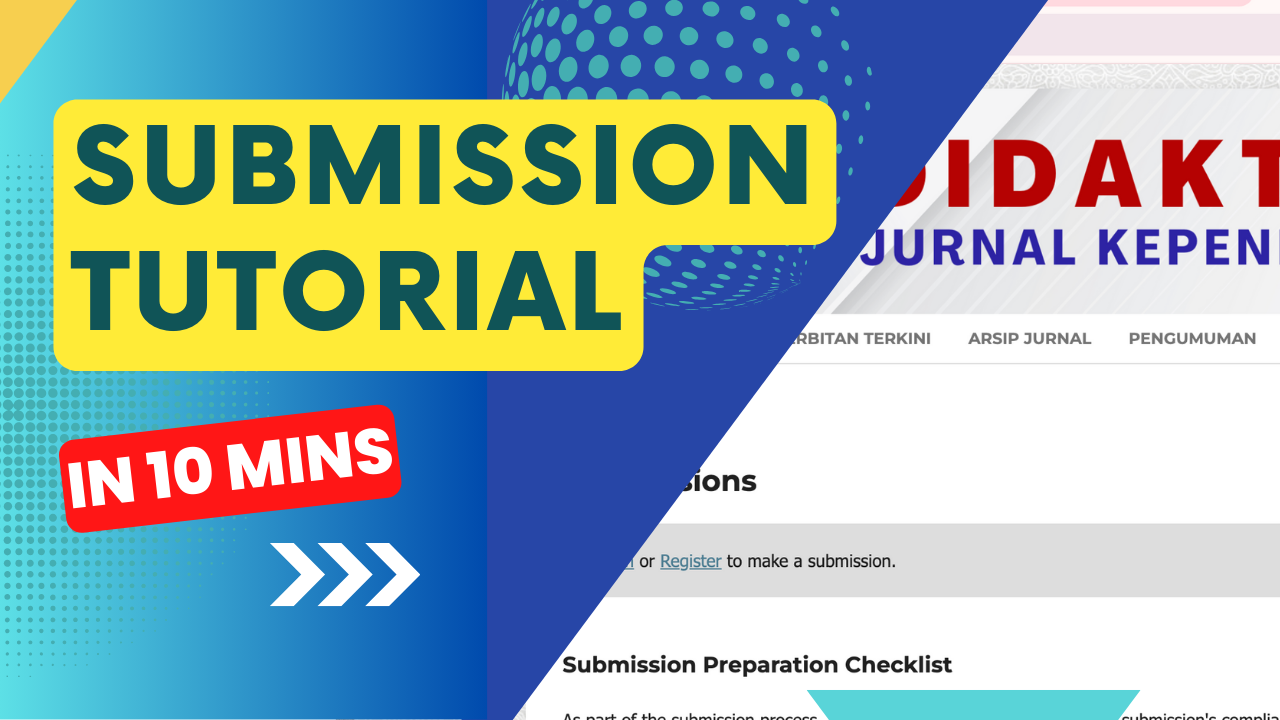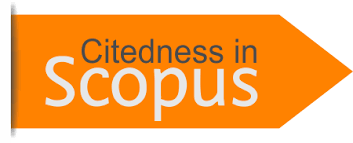Market Driven Strategy dalam konteks Pendidikan: Tinjauan Komprehensif dengan Pendekatan Semantik Literatur
Abstract
Dalam lanskap dinamis pendidikan kontemporer yang dibentuk oleh globalisasi dan kemajuan teknologi, kajian kritis terhadap pendekatan pedagogi tradisional sangatlah penting. Sektor pendidikan, yang dahulu dianggap sebagai barang publik yang berkaitan dengan pembangunan sosial dan potensi individu, kini tunduk pada pengaruh kekuatan pasar. Masalah utama yang dibahas dalam penelitian ini adalah kebutuhan pendidikan untuk beradaptasi dengan perubahan lanskap global yang cepat, didorong oleh kemajuan teknologi dan globalisasi. Penelitian ini bertujuan untuk menyelidiki efektivitas strategi pendidikan berbasis pasar dalam mengatasi tantangan-tantangan ini dan meningkatkan kualitas dan relevansi pendidikan. Tujuan penelitian ini mencakup pemeriksaan terhadap urgensi penerapan market driven strategy sebagai respons terhadap perubahan permintaan tenaga kerja. Selain itu, penelitian ini bertujuan untuk menilai tantangan yang dihadapi oleh strategi-strategi ini, seperti perlunya inovasi berkelanjutan dan kemampuan beradaptasi terhadap perubahan kondisi pasar dan preferensi pelajar. Selain itu, penelitian ini berupaya mengevaluasi efektivitas market driven strategy dalam berbagai konteks dan dampaknya terhadap kualitas dan daya saing pendidikan. Untuk mencapai tujuan tersebut, penelitian ini menggunakan tinjauan literatur yang komprehensif dengan menggunakan pendekatan semantik. Metode yang digunakan mencakup analisis mendalam terhadap literatur yang ada, dengan fokus pada konsep-konsep utama seperti pendidikan berbasis pasar, pendidikan tinggi, dan market driven strategy. Pendekatan semantik memungkinkan dilakukannya penyelidikan sistematis terhadap tema, pola, dan hubungan yang ada dalam karya sastra. Hasil penelitian ini menjelaskan dominasi strategi pendidikan berbasis pasar dalam literatur, khususnya menekankan penerapannya dalam pendidikan tinggi. Temuan-temuan ini menyoroti potensi strategi-strategi ini untuk meningkatkan kualitas pendidikan, menyelaraskan program dengan kebutuhan pasar tenaga kerja, dan meningkatkan daya saing lulusan. Kesimpulannya, penelitian ini membahas masalah mendesak dalam menyelaraskan pendidikan dengan tuntutan pasar yang terus berkembang.
Metrics
References
Almarzooq, Z. I. (2020). Virtual Learning During the COVID-19 Pandemic: A Disruptive Technology in Graduate Medical Education. In Journal of the American College of Cardiology (Vol. 75, Issue 20, pp. 2635–2638). https://doi.org/10.1016/j.jacc.2020.04.015
Andika, A., & Susilo, C. F. (2022). Educational Background Analysis of CEOs of Large Indonesian Listed Companies. ELS Journal on Interdisciplinary Studies in Humanities, 5(2), 240–254.
Asongu, S. A. (2019). Basic formal education quality, information technology, and inclusive human development in sub-Saharan Africa. Sustainable Development, 27(3), 419–428. https://doi.org/10.1002/sd.1914
Bernacki, M. L. (2020). Mobile technology, learning, and achievement: Advances in understanding and measuring the role of mobile technology in education. In Contemporary Educational Psychology (Vol. 60). https://doi.org/10.1016/j.cedpsych.2019.101827
Bond, M. (2020). Mapping research in student engagement and educational technology in higher education: a systematic evidence map. In International Journal of Educational Technology in Higher Education (Vol. 17, Issue 1). https://doi.org/10.1186/s41239-019-0176-8
Burbules, N. C. (2020). Five trends of education and technology in a sustainable future. Geography and Sustainability, 1(2), 93–97. https://doi.org/10.1016/j.geosus.2020.05.001
Burston, M. A. (2020). A complex matter: charitable organisation or corporate institution? A reflection on charity and its applicability in an era of market-driven higher education in Australia. Critical Studies in Education. https://doi.org/10.1080/17508487.2017.1333520
Chanslor, M., & Buzzard, J. (2020). The Market-Driven Education: The Shift From Liberal Arts Emphasis to Career Readiness in Higher Education. Higher Education Response to Exponential …. https://www.igi-global.com/chapter/the-market-driven-education/259018
Chick, R. C. (2020). Using Technology to Maintain the Education of Residents During the COVID-19 Pandemic. Journal of Surgical Education, 77(4), 729–732. https://doi.org/10.1016/j.jsurg.2020.03.018
Code, J. (2020). Pandemic designs for the future: perspectives of technology education teachers during COVID-19. Information and Learning Science, 121(5), 409–421. https://doi.org/10.1108/ILS-04-2020-0112
George, A. S., George, A. S. H., & Baskar, T. (2023). Exploring the Potential of Prompt Engineering in India: A Study on the Future of AI-Driven Job Market and the Role of Higher Education. Partners Universal Innovative …. https://www.puirp.com/index.php/research/article/view/18
Haleem, A. (2022). Understanding the role of digital technologies in education: A review. Sustainable Operations and Computers, 3, 275–285. https://doi.org/10.1016/j.susoc.2022.05.004
Imperial, R. A. (2022). Pluralist publics in market driven education: Towards more democracy in educational reform: by Ruth Boyask, London, Bloomsbury Academic, 2020, 178 pp., $108 …. Taylor &Francis. https://doi.org/10.1080/09620214.2021.1948895
Isaac, O. (2019). Online learning usage within Yemeni higher education: The role of compatibility and task-technology fit as mediating variables in the IS success model. Computers and Education, 136, 113–129. https://doi.org/10.1016/j.compedu.2019.02.012
Kerr, K., & Ainscow, M. (2022). Promoting equity in market-driven education systems: Lessons from England. Education Sciences. https://www.mdpi.com/2227-7102/12/7/495
Lai, J. (2019). How is the use of technology in education evaluated? A systematic review. Computers and Education, 133, 27–42. https://doi.org/10.1016/j.compedu.2019.01.010
Mena, J. (2020). Analysis of vocational education and training and the labour market in catalonia. A data-driven approach. In Communications in Computer and Information Science (Vol. 1167, pp. 522–537). https://doi.org/10.1007/978-3-030-43823-4_42
Mena, J., Torrent-Moreno, M., González, D., & ... (2019). Analysis of vocational education and training and the labour market in catalonia. A data-driven approach. … Conference on Machine …. https://doi.org/10.1007/978-3-030-43823-4_42
Muralidharan, K. (2019). Disrupting education? Experimental evidence on technology-aided instruction in India. American Economic Review, 109(4), 1426–1460. https://doi.org/10.1257/aer.20171112
Mutton, T., Burn, K., & Hagger, H. (2023). Can initial teacher education partnerships maintain their epistemological and pedagogical underpinnings in light of market-driven reforms? The case of …. Elsevier.
Pocol, C. B., Stanca, L., Dabija, D. C., Pop, I. D., & ... (2022). Knowledge co-creation and sustainable education in the labor market-driven university–business environment. In Frontiers in …. frontiersin.org. https://doi.org/10.3389/fenvs.2022.781075
Pratten, E. (2017). Does a Professional Learning Community Have a Positive Impact on the Children in an Education System Driven by Market Forces and Borrowed …. Oxford Brookes University.
Sahin, D. (2020). The effect of Augmented Reality Technology on middle school students’ achievements and attitudes towards science education. Computers and Education, 144. https://doi.org/10.1016/j.compedu.2019.103710
Sepasgozar, S. M. E. (2020). Digital twin and web-based virtual gaming technologies for online education: A case of construction management and engineering. Applied Sciences (Switzerland), 10(13). https://doi.org/10.3390/app10134678
Shen, C. (2020). Technology-enhanced learning in higher education: A bibliometric analysis with latent semantic approach. Computers in Human Behavior, 104. https://doi.org/10.1016/j.chb.2019.106177
Squire, R. (2021). Pluralist publics in market driven education: towards more democracy in educational reform: by Ruth Boyask, London. Taylor &Francis. https://doi.org/10.1080/00131911.2021.1878639
Sukendro, S. (2020). Using an extended Technology Acceptance Model to understand students’ use of e-learning during Covid-19: Indonesian sport science education context. Heliyon, 6(11). https://doi.org/10.1016/j.heliyon.2020.e05410
Szymkowiak, A. (2021). Information technology and Gen Z: The role of teachers, the internet, and technology in the education of young people. Technology in Society, 65. https://doi.org/10.1016/j.techsoc.2021.101565
Teräs, M. (2020). Post-Covid-19 Education and Education Technology ‘Solutionism’: a Seller’s Market. Postdigital Science and Education, 2(3), 863–878. https://doi.org/10.1007/s42438-020-00164-x
Tondeur, J. (2019). Teacher educators as gatekeepers: Preparing the next generation of teachers for technology integration in education. British Journal of Educational Technology, 50(3), 1189–1209. https://doi.org/10.1111/bjet.12748
Troudi, S. (2023). Teacher evaluation and market-driven education. In academia.edu. https://www.academia.edu/download/81087899/Recognising_and_rewarding_teachers_contribution__Salah_Troudi.pdf
Vanduhe, V. Z. (2020). Continuance Intentions to Use Gamification for Training in Higher Education: Integrating the Technology Acceptance Model (TAM), Social Motivation, and Task Technology Fit (TTF). IEEE Access, 8, 21473–21484. https://doi.org/10.1109/ACCESS.2020.2966179
Veldman, F. J. (2018). Market driven global directives and social responsibility in higher education. African Journal of Business Ethics. http://ajobe.journals.ac.za/pub/article/view/168
Williamson, B. (2020). Pandemic politics, pedagogies and practices: digital technologies and distance education during the coronavirus emergency. In Learning, Media and Technology (Vol. 45, Issue 2, pp. 107–114). https://doi.org/10.1080/17439884.2020.1761641
Wingard, J., & Farrugia, C. (2020). Market-driven education: The imperative for responsive design and application. The 60-Year Curriculum. https://doi.org/10.4324/9781003013617-7
Zafar, M. W. (2021). Effects of biomass energy consumption on environmental quality: The role of education and technology in Asia-Pacific Economic Cooperation countries. Renewable and Sustainable Energy Reviews, 142. https://doi.org/10.1016/j.rser.2021.110868
Zhang, C. (2022). Environmental impact of information and communication technology: Unveiling the role of education in developing countries. Technological Forecasting and Social Change, 178. https://doi.org/10.1016/j.techfore.2022.121570
Copyright (c) 2024 Ihda Farhatun Nisak, Agus Rahayu, Puspo Dewi Dirgantari

This work is licensed under a Creative Commons Attribution 4.0 International License.
Dengan mengirimkan naskah artikel, berarti penulis setuju dengan segala kebijakan yang ditetapkan oleh jurnal dan penerbit.
Penulis menyatakan bahwa:
- kebijakan ini telah diketahui dan disetujui bersama oleh semua penulis;
- naskah artikel belum dipublikasikan secara resmi sebelumnya di media ber-ISSN atau ber-ISBN yang terdaftar, kecuali dalam bentuk abstrak atau sebagai bagian dari materi kuliah, atau skripsi/tesis/disertasi yang tidak diterbitkan;
- naskah tidak sedang dalam proses editorial dan dipertimbangkan untuk publikasi di tempat lain;
- publikasi naskah ini telah disetujui oleh semua penulis, institusi afiliasi penulis, otoritas yang bertanggung jawab, dan lembaga di mana kegiatan telah dilakukan;
- naskah berisi materi yang aman dari pelanggaran hak cipta;
Perjanjian Hak Cipta dan Lisensi
- Penulis memiliki hak cipta dan hak kepemilikan lainnya yang terkait dengan artikel.
- Penulis memiliki hak dan diizinkan untuk menggunakan substansi artikel untuk karya-karya penulis berikutnya, termasuk untuk keperluan bahan/materi kuliah dan buku.
- Penulis menyerahkan hak publikasi pertama kepada jurnal dengan di bawah Lisensi Creative Commons (CC BY 4.0).
Pernyataan Lisensi CC BY 4.0
Anda diperbolehkan:
- Berbagi — menyalin dan menyebarluaskan kembali materi ini dalam bentuk atau format apapun;
- Adaptasi — menggubah, mengubah, dan membuat turunan dari materi ini untuk kepentingan apapun, termasuk kepentingan komersial.
Pemberi lisensi tidak dapat mencabut ketentuan di atas sepanjang Anda mematuhi ketentuan lisensi berikut ini.
- Atribusi — Anda harus mencantumkan nama yang sesuai, mencantumkan tautan terhadap lisensi, dan menyatakan bahwa telah ada perubahan yang dilakukan. Anda dapat melakukan hal ini dengan cara yang sesuai, namun tidak mengisyaratkan bahwa pemberi lisensi mendukung Anda atau penggunaan Anda.
- Tidak ada pembatasan tambahan — Anda tidak dapat menggunakan ketentuan hukum atau sarana kontrol teknologi yang secara hukum membatasi orang lain untuk melakukan hal-hal yang diizinkan lisensi ini.






.png)








